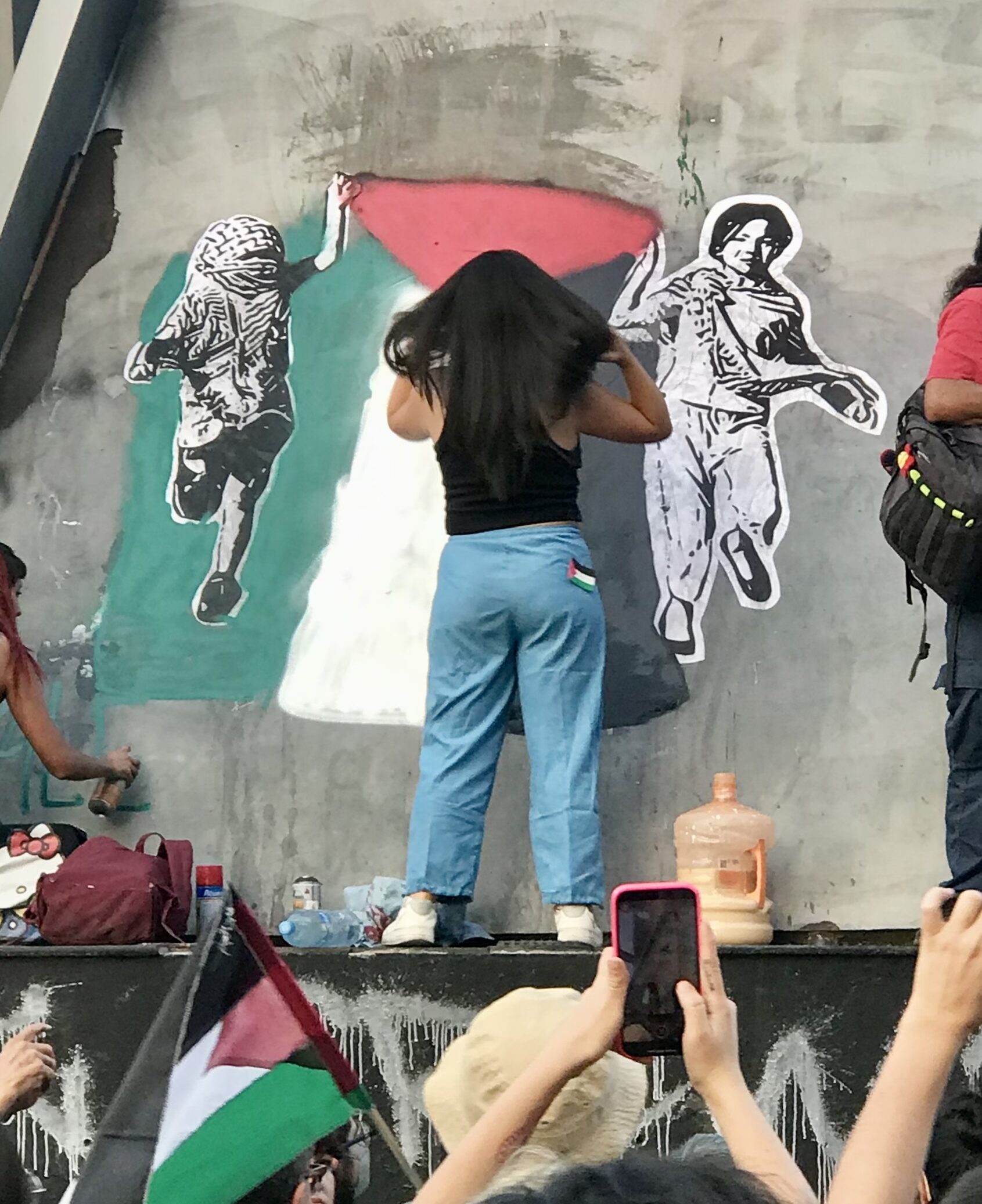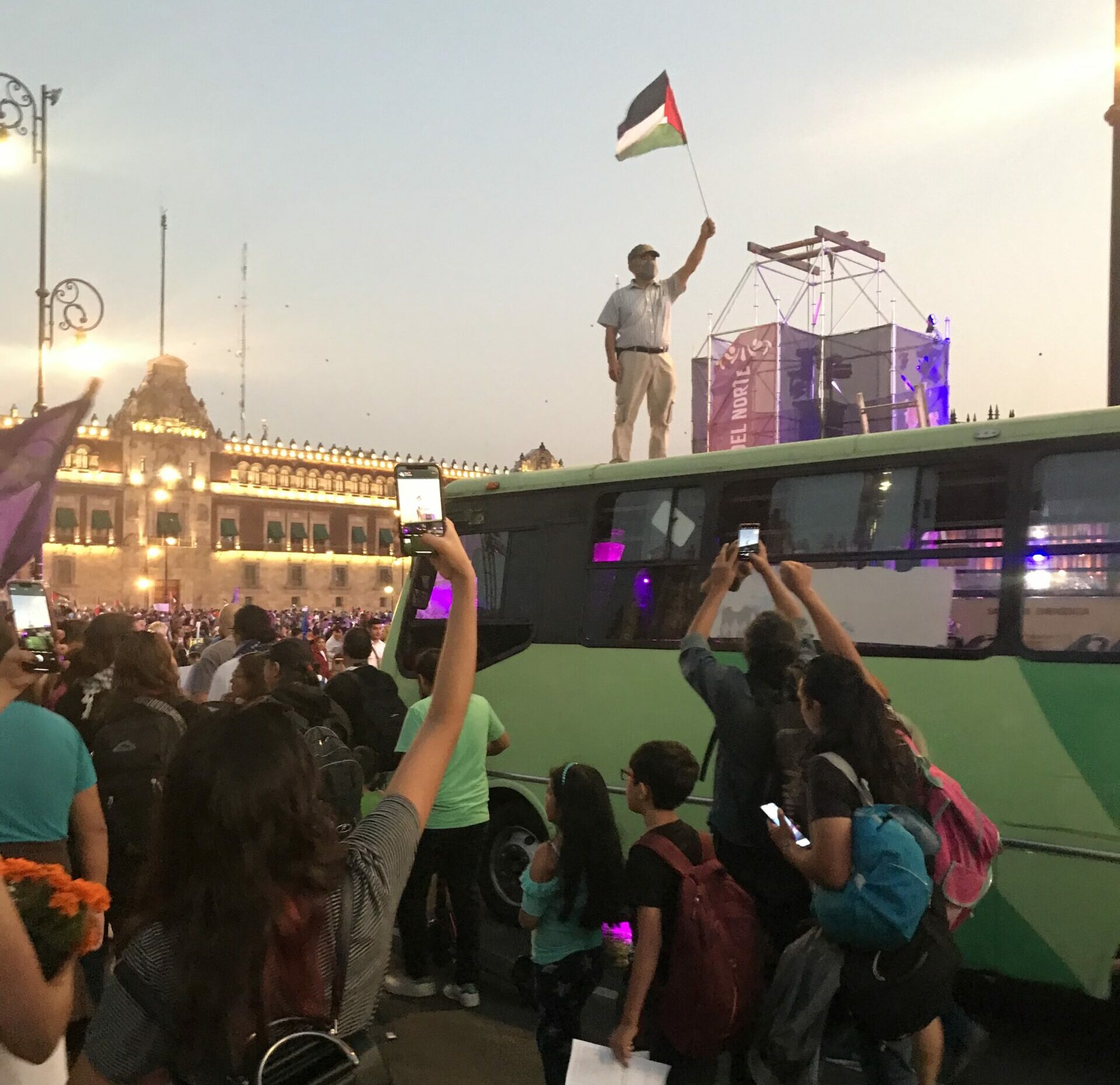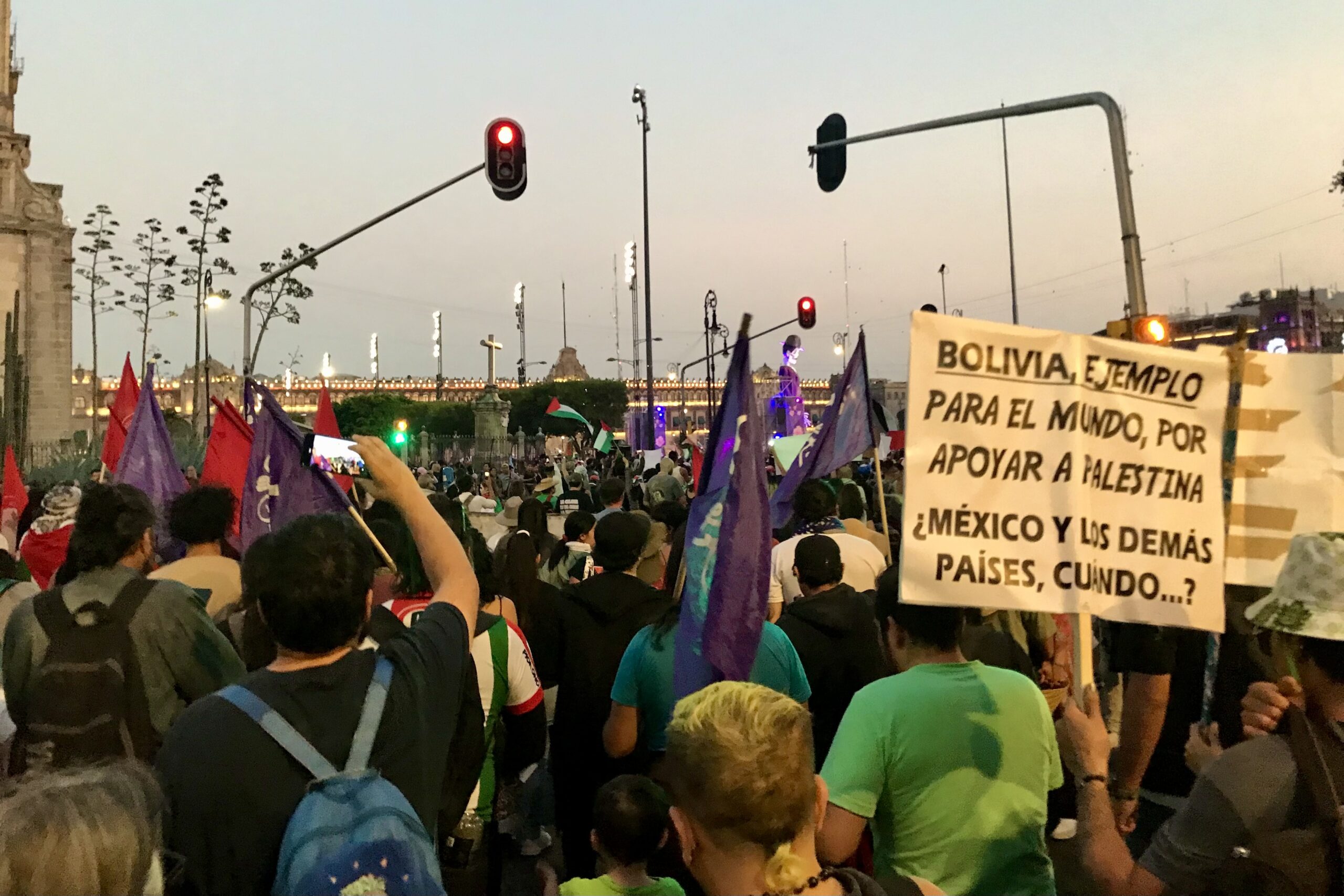Gaza City has been practically wiped off the map. Israeli attacks focused on hospitals, which also serve as shelters for the displaced and bombed population, and other civilian targets have led to widespread accusations of war crimes. The United Nations has called the constant bombardment of Gaza by Israel the deadliest urban offensive sine WWII. The Office for the Coordination of Humanitarian Affairs reports testimonies that after shelling the hospitals, snipers shot doctors, patients and civilians fleeing the building. The grisly death toll of Palestinians surpasses 13,500, with two-thirds of the victims women and children. Although President Biden–after making the fatal decision to unconditionally support Israel in the genocide—cynically stated that the figures are inflated, his own undersecretary for the Middle East said that the deaths are actually higher than the number reported.
Israel combines aerial bombardment of civilian targets with ground invasion in a campaign to depopulate the entire area. It has ruled that the population in northern Gaza must leave for the south and documents made public reveal a proposal to expel them to Egypt.
The campaign to forcibly displace an entire population blatantly violates international law and human rights, and the bombing of civilians constitutes ongoing genocide. As the Israeli and U.S. governments proceed with the extermination of Palestine and its people, Palestine are resisting with massive displays of solidarity in the streets of cities around the world. However, the massacre continues day after day in a vacuum of global leadership on the part of governments and multilateral institutions.
Despite the high risk of the conflict spreading, and with the pressing moral and political need to stop the genocide, neither the United Nations nor the governments of supposedly democratic countries have been able to articulate a response for peace. This is not primarily due to ineptitude. There is a lack of political will and a strong front of colonial/imperialist nations defending the invasion. The Biden administration’s veto of a Brazilian resolution calling for a reversal of the Gaza evacuation order and humanitarian pauses to deliver aid is only the most outrageous example of the complicity.
From a feminist perspective, the mandate is clear–an immediate ceasefire. As feminists, we defend life and demand the eradication of all forms of violence. We uphold a longstanding commitment to promote dialogue and reject the use of force to dominate, subject and kill.

Women of the region have consistently acted on these principles. Just days before the outbreak of the conflict, the Israeli feminist organization Women Wage Peace and the Palestinian Women of the Sun held demonstrations with thousands of people to demand a negotiated solution to the conflict. Their “Call of the Mothers” reads in part:
“We, Palestinian and Israeli mothers, are determined to stop the vicious cycle of bloodshed and to change the reality of the difficult conflict between both nations, for the benefit of our children”
Feminism (decolonial and communitarian feminisms) has developed a deep critique of militarism and the toxic masculinities that provoke wars and that are propagated in the context of war, any war. And this is not just any war. The invasion of Gaza is not the violence of combatants on one side against combatants on the other. International experts recognize it as genocide because the relentless attacks are directed on destroying the social fabric, infrastructure and lives of the Palestinian people. This type of war of extermination has a much greater and specific impact on women because women maintain the social fabric, and reproduce and sustain life even in the most hostile conditions, which has been the case in Gaza in recent decades.
All over the world, feminist peace organizations are researching, protesting, and pressuring their governments, and demanding to be included in a necessary peace process to reach a negotiated solution with respect for human rights.
In the US, the feminist anti-war group Code Pink protested at a Senate hearing where Secretary of State Antony Blinken attempted to justify support for Israel. With their hands painted red as the blood of the Gaza people, they shouted “Cease fire now!” and “Save the children of Gaza” until security officers removed them from the room. Code Pink co-founder Medea Benjamin explained, “We are totally against the position of our government that is supporting Israel not only on diplomatic issues, but is now about to send 14 billion more to Israel to continue its massacre. That’s why we did the action.”
It was also women–the group Women for Transparency in Arms Trade–who revealed a hidden clause in the Biden administration’s requested $106 billion military aid package to Ukraine and Israel (with another earmark for the southern border with Mexico, with the same war logic). In addition to funding genocide, it contains a clause requesting permission to unilaterally approve all sales of military equipment and weapons to Israel without notifying Congress, an almost unprecedented exemption.

Following the lead of Palestinian feminists in their homeland and in the larger Palestinian diaspora, feminist organizations are building a transnational feminist movement for Palestine from a firm pro-peace stance. At the largest pro-Palestine march in U.S. history, members of the Palestinian Feminist Collective spoke of the cost of war from a gender perspective: 70% of the dead are women and children. In Gaza there are currently 50,000 pregnant women who will have to give birth without hospitals, water or energy. UN Women reports that there are 690,000 women and girls displaced by the attacks who are exposed to sexual violence, in addition to the violence and terror of the attacks and bombings.
In the midst of the tragedy, Palestinian feminists still find hope. The women of the Palestinian Feminist Collective reaffirmed their resistance:
“This attack on indigenous women’s bodies and sexualities is woven into the genocidal pattern of Israeli settler colonialism, but our love and care for each other, our insistence on living, our persistence in giving birth to the next generation of Palestinians in our homeland, to stand firm in the midst of uninhabitable places is a testament to the fact that we refuse to die in silence.
We reject the terms of our exile. We are a people who teach life and continue to create life despite genocide, through our revolutionary life, our love for each other and our love for our homeland. And that love is something that the colonizer can never take away from us.”
The Palestinian feminist and human rights lawyer Noura Erakat, also spoke to the crowd:
“We are here because Palestine reveals the naked hypocrisy of Western universalism, and reveals our enduring colonial reality, and offers us a glimpse of a future without colonialism.”

The messages of Palestinian women are clear. We, organized feminists, have a political and moral obligation to listen to them. At a South Feminist Futures event, Palestinian activist, Samaher Elkady thanked the international feminists present and made a passionate plea to listeners:
“We must continue to cry out for truth, justice and liberation, listen to the cry of every person who is dying right now-about 15 to 20 die every 60 minutes in Gaza…We have to stop the killings!”
Dr. Yamila Hussein, of Harvard University, defined the kind of solidarity needed at this critical moment:
“It’s to support the Palestinian people, but also people have to defend humanity–their own humanity. People who are not doing everything they can, day and night, have to ask themselves: what kind of human being am I and what kind of human being do I want to be?
And what kind of world do I want to live in? What kind of world do I want my children to grow up in? In what world do I want my parents to grow old? Because what’s happening in Palestine has an impact on the whole world. Not because us Palestinians are something special, but because the Palestinians are now in this moment when all the powers of the world are crushing us. And you know, they won’t stop here.”
Laura Carlsen is director of Mira: Feminisms and Democracies. She also works with Just Associates and is a political analyst, researcher, and journalist on international relations, movement building and justice issues.



